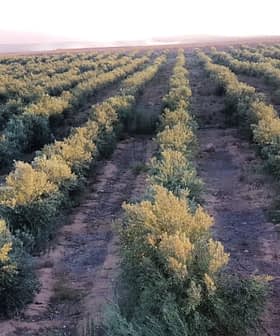
Olive producers in the Turkish province of Muğla have criticized a draft bill in parliament to allow energy and mining activities on land that has been home to traditional olive groves for hundreds of years.
The initiative has raised concerns not just about the future of the Turkish olive oil sector, but about long term environmental damage as well.
By removing the official status of olive fields with areas of less than two-and-a-half hectares, the bill would pave the way for energy projects such as a nuclear power plant in Mersin and a thermal power plant in Yatağan. The bill would also remove current legislation that requires renewable energy facilities to be built at least three kilometers from land designated for olive production.
Many olive producers have expressed their disappointment with the Ministry of Agriculture, which has supported the sector in its efforts to expand over the past 12 years.
“None of the opposition deputies believe this bill proposal to be logical. There are deputies even from the ruling party who oppose it, but we see no sign of the government listening to our concerns this time,” said Tariş Oil and Olive Oil Sales Cooperative Union head Güngör Şarman in Today’s Zaman.
Critics say the bill contradicts the Turkish government’s plans to promote national olive production, which was valued at $1.5 billion in 2012 – 2013. Since 2000 the number of olive trees in Turkey has increased from 90 million to 170 million, and olive exports are expected to reach $3.8 billion by 2023 at the current rate, though the proposed bill could change all of that.
Turkey currently ranks fourth on the list of the world’s top olive and olive oil producers after Spain, Italy and Greece, with 10 percent of olive and 6 percent of olive oil production worldwide.








